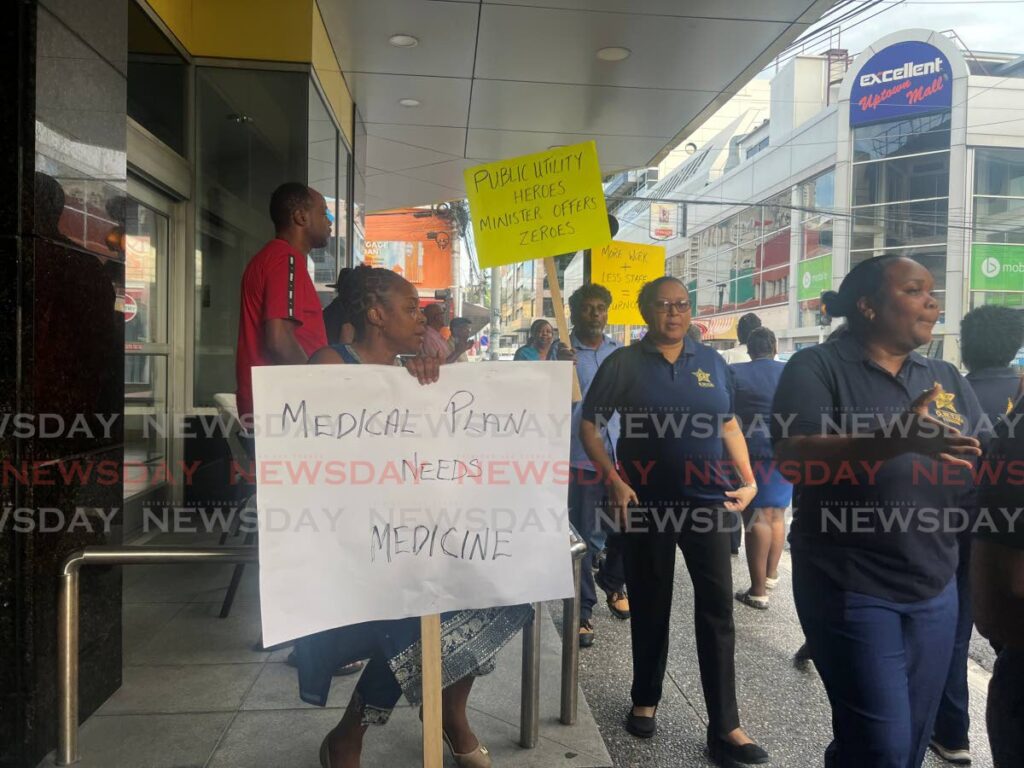Roget: Protests will escalate until T&TEC deals with workers’ concerns

OILFIELD Workers Trade Union (OWTU) president general Ancel Roget is warning the Trinidad and Tobago Electricity Commission (T&TEC) that protests will escalate if it fails to address employees’ issues, promising: “Something big is going to happen.”
In a Facebook live broadcast during a protest outside T&TEC’s Transmission branch in Freeport on October 30, Roget said: “It will continue to escalate. and this is just a dress rehearsal for something big to come.”
Roget stressed that the workers were not engaging in industrial action on company time but rather, sacrificing their personal time to protest.
On October 27 T&TEC approached the Industrial Court for injunctive relief to prevent the OWTU and workers from taking industrial action after two similar protests outside working hours days earlier.
The OWTU gave an undertaking that it would not take such action. The protest on October 30 began shortly before 5 pm.
Speaking at last week’s iteration of the co-ordinated protests at the commission’s Distribution South Office on Cipeiro Street, San Fernando, Roget said T&TEC would have no one to blame but itself if “everything comes to a screeching halt” if employees' concerns are not dealt with.
The demonstration on October 30 was the second occasion in two weeks on which T&TEC workers across the country staged co-ordinated protests at their respective branches to highlight issues affecting the company and its workers, such as wages, staff shortages and filling vacancies with contracted workers, including retirees who have returned as contractors.
Speaking to Newsday outside the commission’s head office in Port of Spain, committee member Glen Riley expressed concern over stalled negotiations, medical plans, poor management and inadequate procurement processes.
He said employees were “not lasting long after they retire,” stressing the significant manpower challenges employees were dealing with in the organisation. Expressing frustration over the lack of response to their demands, he said it had been over ten years since negotiations started.
“We have shown remarkable patience during this time.”
Riley said T&TEC had not made any substantial efforts to address employees’ concerns or improve their financial conditions.
He referred to a recent mission to Grenada, when employees received praise from the Minister of Public Utilities, Marvin Gonzalez, who referred to them as heroes. Despite this acknowledgement, Riley lamented, “To date, we are not treated like heroes or essential workers.”
Asked about future demonstrations, Riley said more actions may be forthcoming, but ultimately, the decision rests with their president general. He urged the public to understand the significance of their demands, particularly over medical and pension plans that have not seen adequate input or adjustments in over a decade.
Reiterating the urgency of the situation, Riley called for prompt intervention by those in authority.
“We need action quickly, because our patience is wearing thin.”
He concluded that as essential workers, the employees will not engage in counterproductive actions but will continue to advocate for their rights.
A media statement on October 25 said, “T&TEC wishes to once again assure the public that it will do everything in its power to ensure that the country continues to receive a safe and reliable supply of electricity without any disruptions.”
It said the health and safety of employees and customers is always its number one priority and of paramount concern and it will continue to investigate and address all reports about these issues.

Comments
"Roget: Protests will escalate until T&TEC deals with workers’ concerns"